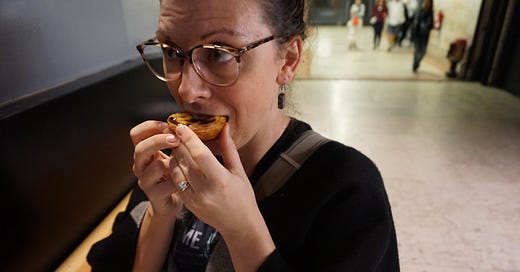I’ve moved! You can find this post (and me!) at JanetBufton.ca
I am keeping posts about my published content on Substack, but if you’re looking for original content (like this post), I’m hosting it there now. The link above will take you to the content you expected here!





Thanks for sharing this, I don’t think you know how important it is for women to read about other women they look up to having to struggle with this and surviving. You’re awesome, Janet, and so is your tough body.
I genuinely don’t understand western white women who have healthy relationships with food, exercise, and weight.